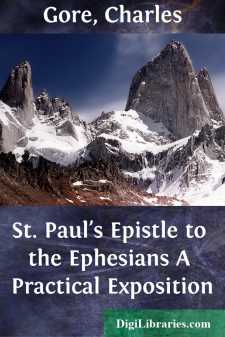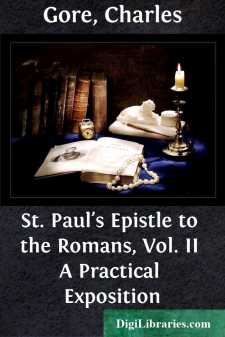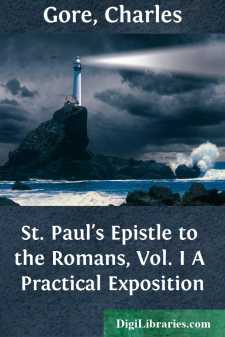Categories
- Antiques & Collectibles 13
- Architecture 36
- Art 48
- Bibles 22
- Biography & Autobiography 813
- Body, Mind & Spirit 142
- Business & Economics 28
- Children's Books 16
- Children's Fiction 13
- Computers 4
- Cooking 94
- Crafts & Hobbies 4
- Drama 346
- Education 46
- Family & Relationships 57
- Fiction 11829
- Games 19
- Gardening 17
- Health & Fitness 34
- History 1377
- House & Home 1
- Humor 147
- Juvenile Fiction 1873
- Juvenile Nonfiction 202
- Language Arts & Disciplines 88
- Law 16
- Literary Collections 686
- Literary Criticism 179
- Mathematics 13
- Medical 41
- Music 40
- Nature 179
- Non-Classifiable 1768
- Performing Arts 7
- Periodicals 1453
- Philosophy 64
- Photography 2
- Poetry 896
- Political Science 203
- Psychology 42
- Reference 154
- Religion 513
- Science 126
- Self-Help 84
- Social Science 81
- Sports & Recreation 34
- Study Aids 3
- Technology & Engineering 59
- Transportation 23
- Travel 463
- True Crime 29
Charles Gore
Charles Gore was an influential English theologian, writer, and bishop in the late 19th and early 20th centuries. He is best known for his works on Christian doctrine, including "The Reconstruction of Belief" and "The Incarnation of the Son of God." A key figure in the Anglo-Catholic movement, he also founded the Community of the Resurrection, a religious community devoted to social justice and education. Gore's theological writings focused on the relationship between faith and modern thought, significantly shaping Anglican theology.
Author's Books:
Sort by:
by:
Charles Gore
Introduction. i. Introduction There are two great rivers of Europe which, in their course, offer a not uninstructive analogy to the Church of God. The Rhine and the Rhone both take their rise from mountain glaciers, and for the first hundred or hundred and fifty miles from their sources they run turbid as glacier streams always are, and for the most part turbulent as mountain torrents. Then they enter...
more...
by:
Charles Gore
St. Paul has concluded his great exposition of the meaning of 'the gospel': that in it is the disclosure of a divine righteousness into which all mankind—Jews and Gentiles on the same level of need and sin—are to be freely admitted by simply believing in Jesus. The believer in Jesus first welcomes the absolute and unmerited forgiveness of his sins, which his redeemer has won for him, and...
more...
by:
Charles Gore
Introduction. i. St. Paul's great Epistle to the Romans was written, as may be quite confidently asserted, from Corinth, during the second visit to Greece recorded in the Acts[], i.e. in the beginning of the year commonly reckoned 58, but perhaps more correctly 56 A.D.—the year following the writing of the Epistles to the Corinthians. The reasons for this confident statement, and indeed for all...
more...
by:
Charles Gore
I. I propose to consider, in a series of three papers, the influence of Science upon Religion. In doing this I shall seek to confine myself to the strictly rational aspect of the subject, without travelling into any matters of sentiment. Moreover, I shall aim at estimating in the first instance the kind and degree of influence which has been exerted by Science upon Religion in the past, and then go on...
more...





